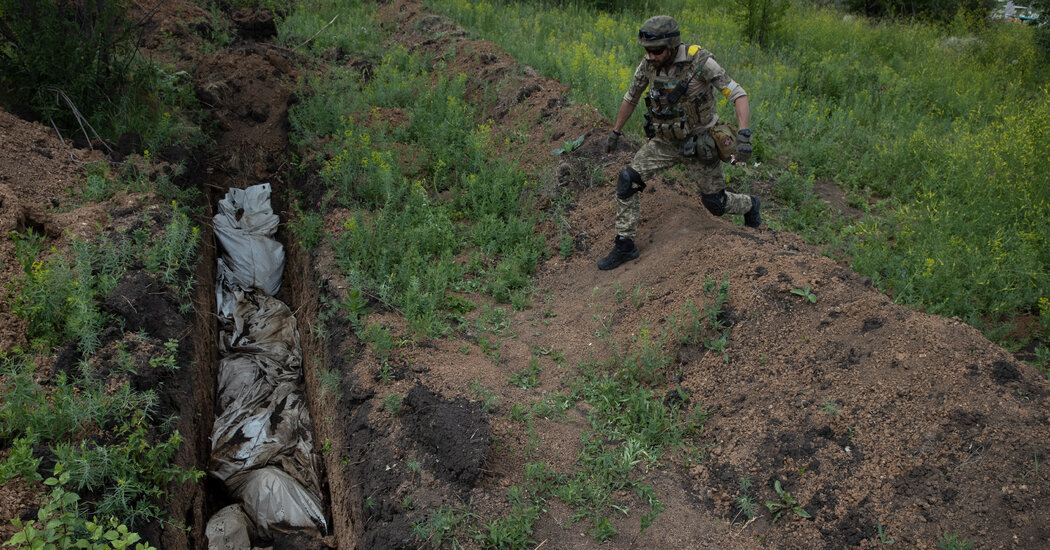For Ukrainians in Donbas, tragedy is the backdrop to everyday existence.

LYSYCHANSK, Ukraine — There was a mass grave that held 300 people, and I was standing at its edge. The chalky body bags were piled up in the pit, exposed. One moment before, I was a different person, someone who never knew how wind smelled after it passed over the dead on a pleasant summer afternoon.
In mid-June, those corpses were far from a complete count of the civilians killed by shelling in the area around the industrial city of Lysychansk over the previous two months. They were only “the ones who did not have anyone to bury them in a garden or a backyard,” a soldier said casually.
He lit a cigarette while we looked at the grave.
The smoke obscured the smell.
It was rare to get such a moment to slow down, observe and reflect while reporting from Ukraine’s eastern Donbas region. But that day, the Ukrainian soldiers were pleased after delivering packets of food and other goods to local civilians, so they offered to take reporters from The New York Times to another site that they said we should see: the mass grave.
After leaving the site, I naïvely thought the palpable presence of death in the air could not follow me home — over all of the roads and checkpoints separating the graves in the Donbas — to my loved ones in the western part of Ukraine.
I was wrong.
I had returned to Kyiv, the capital, to the small apartment I had been renting, and was washing the smoke and dust of the front lines off my clothes when my best friend, Yulia, texted: She had lost her cousin, a soldier, fighting in the east.
I would soon have to stand over another grave.
It was an experience familiar to many Ukrainians. Five months after the full-scale Russian invasion began, the wars’ front lines mean little. Missile strikes and the news of death and casualties have blackened nearly every part of the country like poison.
Yulia’s cousin Serhiy was serving in an air mobile battalion around the city of Izium in the east. A few hours before he died, he sent his last message to his mother, Halyna: an emoji of a flower bouquet. Then he drove to the fight on the front line, where a Russian machine gun found him.
In Donbas, these tragedies are a backdrop to everyday existence, piling up in numbers that seem inconceivable even as they completely surround you, an inescapable reality that feels like the very air in your lungs.
